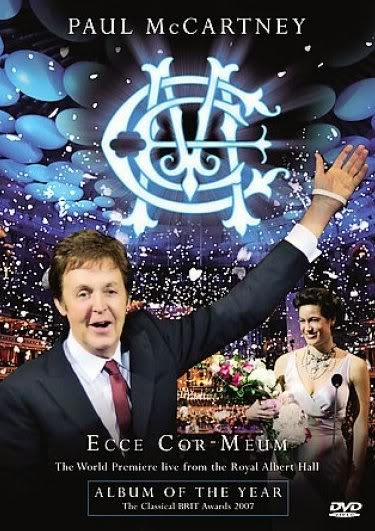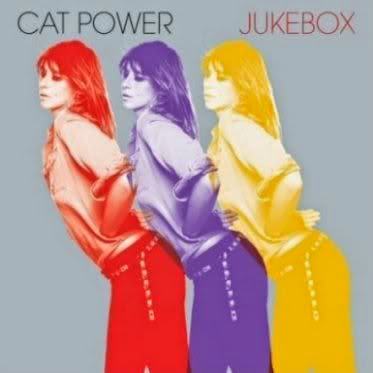
The question of whether or not the best art comes from suffering has sustained for time immemorial. Of course, having the talent to facilitate such distinction factors into the issue as well, but countless artists in all fields and genres have indeed produced sublime and lasting works in the throes of distress. With her third album, Another Country, singer/songwriter Tift Merritt joins this ubiquitous array of artists by not only summoning poignant and beautiful music out of anguish, but also in delivering her finest album to date.
The young woman who lit out like a Southern spitfire on her two previous albums, Bramble Rose and Tambourine, now is disillusioned and highly introspective. She says so in some rather touching liner notes, but you can just as easily hear it on the album. She's insecure yet disarmingly unguarded with fresh hurt in her voice, an indication that – in the writing and singing of these songs – she's working something through.
A warm reflection of its contemplative tone, much of the album’s music harvests lilting, modest melodies. “Tender Branch" bends and sways like its title suggests while “Keep You Happy” aches with unmistakable longing. “Hopes Too High” and “Broken” are both underscored by some particularly agile guitar work. Throughout, piano and subtle string progressions cradle Merritt’s inherently sensual vocals, which fluctuate from delicate to determined in their timbre and strength.
Merritt's honey-soaked voice, above all, is what distinguishes this album as exceptional. Even at her most discouraged, she imparts such an unassuming amount of sultriness that her often-melancholy perspective winds up personalizing each song’s impact to a penetrating extent. Her wistful, come-hither inflections on “Morning Is My Destination” are enough to make you put on “Breakfast In Bed” from Dusty In Memphis for an analogous comparison. And her sad yearning for love on “Another Country” feels more and more passionate upon each listen, making it one of the most absorbing songs on the album.
In her liner notes, Tift Merritt writes about how, in a time of personal turmoil, she emigrated to France (hence the album title and its thematic symbolism). Though she doesn’t come clean on what exactly she left behind, it was enough to encourage a new environment in which to reassess her life. And while reading her passage isn’t necessary to appreciate the album, it does offer a stirring impression that invariably puts this music into sharper context. Another Country, quite simply, is Tift Merritt’s gorgeous and compelling response to her own crushed spirit.

Paul McCartney does not know how to read or write formal music notation, which seems incomprehensible considering the song catalog accredited to his name. Even more unfathomable, though, is that on top of the hundreds of pop songs he’s written, he’s also composed three orchestral works without understanding the rules and methods of classical composition.
McCartney issued his most recent classical piece, a choral work entitled Ecce Cor Meum, on compact disc in September 2006. The work’s concert premiere, recorded in November of the same year at London’s Royal Albert Hall, now sees its release on digital videodisc.
Over an hour in its entirety, this live performance of Ecce Cor Meum illustrates that McCartney’s gift for melody is by no means exclusive to pop music. In an exquisite synergy of voice and instrument, this four-movement work melds the talents of soprano Kate Royal, three choirs, a pipe organist, and full orchestra into a cohesive piece of music. Countermelodies within the orchestra intertwine and offset distinct vocal lines from the choirs, the combined sound one of majestic power yet also gentle, almost solemn execution. Ms. Royal maintains an unassuming grace throughout, her exhilarating voice shining at the appropriate times while never distracting from the overall production. Most impressive, though, is how Ecce Cor Meum achieves an austere impression while being accessible to anyone unfamiliar with classical form.
In an accompanying documentary, “Creating Ecce Cor Meum,” McCartney discusses the origins and development of this choral work. Commissioned in the late 1990s, he’d barely commenced with the project before the death of Linda McCartney forced him into a solid year of creative inactivity and bereavement. Slowly returning to composing, McCartney wrote the somber yet lovely “Interlude (Lament),” which segues the second and third movements, as a tribute to his late wife. It’s with that spirit–an enduring sense of loss and love–that this entire work assumes its humble magnificence.
Towards the end of the live performance, a camera catches McCartney watching from the audience, looking pensive if not a bit melancholy. His daughter, Stella, sits at his side. It’s a moment of candid reflection, perhaps of all the work that’s coming to fruition on the stage, perhaps of memories that inspired this piece in the first place. Incidentally, Ecce Cor Meum translates in English to “Behold My Heart,” which, considering the context in that it was created, in knowing how McCartney has long relied more on emotion than formal or even logical technique to create music, such a title seems entirely appropriate.

When a musician is described as “old school” or “retro,” the implication is that the artist reflects an aesthetic more accustomed to that of a previous, creatively heralded era rather than what constitutes present trends. John Legend receives such labels, but not because his music sounds derivative or deliberately nostalgic. Rather, it’s because it summons the spirit and substance of classic rhythm & blues even as it embraces contemporary styles.
With only two studio albums under his belt, Legend has already exhibited a breadth of talent and potential. And with his latest album, Live From Philadelphia – which is available exclusively at Target – he demonstrates how well his music holds up on the concert stage. Given his relatively concise catalog thus far, it’s commendable that there are no ostentatious interludes or needless routines to comprise a full-length show. A few select covers get sprinkled in for good measure, including a scorching version of The Beatles’ “I Want You (She’s So Heavy),” but Legend efficiently supplies most of the 19-song setlist.
In the church-rooted tradition of rhythm & blues, Legend blends secular themes with spiritual undertones. His backup singers often sound like a choir and they employ the gospel technique of call and response, which has been an R&B staple since its pioneering use by the likes of Ray Charles, Curtis Mayfield & The Impressions, and Aretha Franklin. While gospel flavors much of this album’s music, grooves like “Slowdance” and “Heaven” feature the call and response technique in its most sanctified form.
Even so, the clearest revelation of Legend’s talent occurs when the tempo slows down and the music emphasizes his voice and piano playing. Performances of ballads like “Again” and “Coming Home,” the latter a poignant letter from war, reflect a sophistication that extends beyond technical skill. Legend sounds suave yet strong, phrasing each lyric with its appropriate sentiment and tone. When he plays the first discreet notes of “Ordinary People,” he elicits a rapturous response from the audience and rightfully so. It’s arguably his finest song to date and one of the most authentic portrayals of relationships set to music in recent memory.
So when John Legend receives “old school” comparisons, it should be regarded as a compliment. Like the influential artists who preceded him, he writes and performs quality music that acknowledges the past while celebrating the present. Live From Philadelphia illustrates just how well he does it.

Must rock musicians take themselves so seriously? In the case of the San Diego band, Louis XIV, it appears that the answer, regrettably, is yes.
On their debut effort, The Best Little Secrets Are Kept, they shot straight from the waist, all roguish and cocksure like some high school football squad crashing a cheerleader camp. Lubricious songs like “Paper Doll” and “Pledge of Allegiance” crammed gobs of flirtation and foreplay into potent blasts of raw guitar and drums. The album smacked of chauvinism, female objectification, and salaciousness, which – political correctness be damned – is exactly what made that music so exciting.
Maybe the members of Louis XIV feared such a ribald brand of rock and roll would paint them into a corner, relegating them to nothing more than kitsch. Perhaps they felt the creative urge to explore the depths of their talent. Whatever the reason, Louis XIV disappointingly assume a more restrained and often-underwhelming approach on their sophomore release, Slick Dogs and Ponies.
Any decent band should attempt to improve and expand upon its previous work lest the new music sounds stale or contrived, but Louis XIV have forsaken too much of what distinguished them in the first place. Gone are the incendiary musical punches and the punk bravado, supplanted – on every track – by a string section. Regardless of how brash or sexually suggestive the lyrics read on paper (unless you’re Barry White), having a violin accompaniment invariably muffles the message. Such a sonic departure, at least for this band, illustrates indulgence of style over substance. Incidentally, if purchased on iTunes, the album includes a string-laden cover of “Eleanor Rigby,” which doesn’t do anything to diminish this ostentatious impression.
Had this album not been overproduced, many of its songs would have fared quite well. In any event, only a few stand out in their present form (and some by narrow margins). The best of the bunch is “Stalker,” which repeats the creepy line, “I can stare at you all night and you won’t even notice,” and actually benefits from its string progression, adding suspense like that of a horror film. As well, “Free Won’t Be What It Used To Be” and “Guilt By Association” come closest to summoning the band’s capable swagger and verve, but grating orchestration and effects ultimately saturate the songs, likening them more to shrill melodramas rather than to the commanding songs that could have resulted.
Louis XIV demonstrated an ambitious and enthralling dose of rock and roll with their first album, but their aspirations prove too convoluted on Slick Dogs And Ponies. Artists should evolve to create the best work possible, but they should also possess the wherewithal to know when to use some restraint. In the end, this album just makes Louis XIV seem too pretentious for their own good.

Like some wistful Southern novel, the music of Cat Power can transport you to a place where time crawls, like a lazy summer evening where the smell of sugarcane wafts through the sticky air. On her latest album, she blends echoes of the past with more modern expression – including her own – into a succulent collection of songs called Jukebox.
Ostensibly a sequel to The Covers Record, Jukebox includes songs written or made famous by artists as diverse as James Brown, Hank Williams, Billie Holiday, Janis Joplin, and Bob Dylan. As well, Cat Power contributes “Metal Heart,” which appeared in its original incarnation on her album, Moon Pix, and “Song To Bobby,” a mesmerizing new track that is supposedly a tribute to Dylan.
Although a collection of covers invariably calls for comparisons between new and original (or most familiar) versions of the songs, such attention is not altogether necessary to appreciate this album. In fact, Cat Power invests so much of her own temperament and technique into these songs that some bear an only minimal resemblance to their predecessors, thus taking on an entirely distinctive sound.
An ethereal air runs through songs like “Ramblin’ (Wo)man” and “Blue” as the singer moans to music that hovers like a nebulous mist. On “I Believe In You,” arguably the album’s boldest cut, she muscles her way through a writhing groove hinged on a riff worthy of Keith Richards. And musically subtler though no less vocally daring, other tracks are steeped in unadulterated soul, such as “Aretha, Sing One For Me” and “A Woman Left Lonely,” which allow Cat Power to stretch her voice with its low and lustful drawl.
Like its title suggests, Jukebox comprises songs from different genres and artists. Unlike a Wurlitzer though, this music collection coalesces into a cohesive album drawn together by one breathtaking voice. Cat Power treats these songs not as works to be duplicated but as templates from which to render a singularly creative and beguiling album.
















